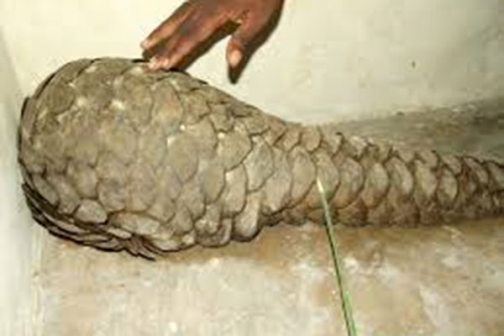×
The Standard e-Paper
Smart Minds Choose Us

NAIROBI: Kenya Wildlife Service (KWS) canine unit security personnel have seized 500 kilogrammes of Pangolin scales worth Sh300 million at the Jomo Kenyatta International Airport (JKIA).
According to KWS communications manager, the unaccompanied consignment was seized at KQ cargo area of JKIA by KWS canine team. Investigations officers from KWS headquarters were called in and secured a seizure notice from the Customs department. The seized consignment is currently in KWS custody.